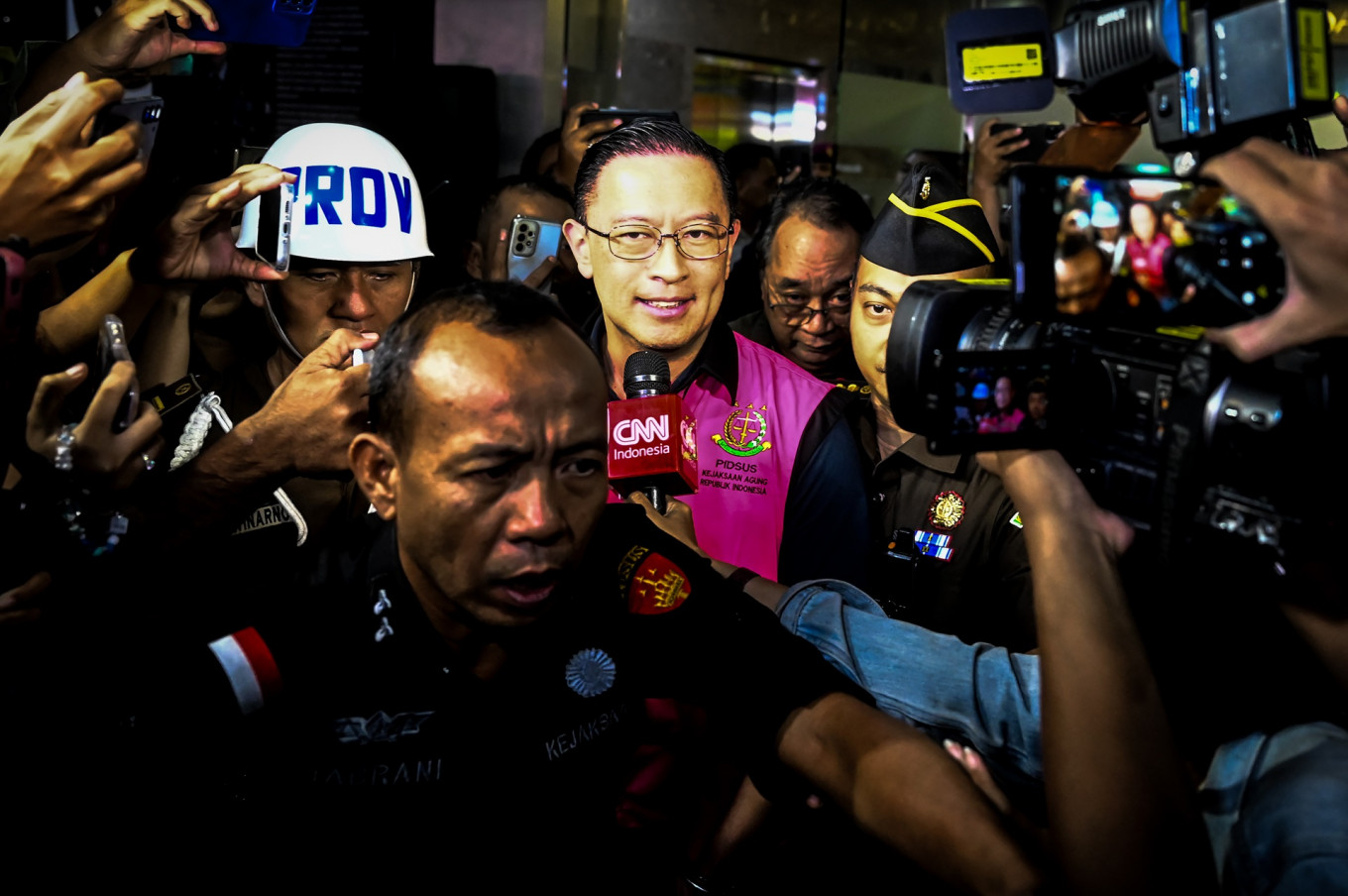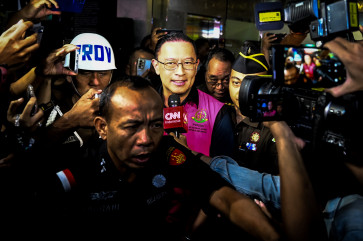Popular Reads
Top Results
Can't find what you're looking for?
View all search resultsPopular Reads
Top Results
Can't find what you're looking for?
View all search resultsLegal uncertainty: What can we learn from the sugar import case?
What Thomas Lembong did during his time as trade minister was routine as a policy maker.
Change text size
Gift Premium Articles
to Anyone
C
orruption cases involving international trade are not new. We have seen plenty, from cooking oil and shrimp exports to textile imports, and now, sugar. The sugar case is interesting amid its potential political motive, but also because the case itself illustrates a dilemma surrounding a decision making process by a high-ranking government official.
The case in question involves former trade minister Thomas Lembong versus the state. The Attorney General’s Office (AGO) has accused Thomas of acting against the public interest on at least two accounts. First, he issued an import permit in 2015 while Indonesia had a sugar surplus, thus harming local sugar producers. Second, he issued another permit in 2016 to eight private companies instead of to state-owned enterprises (SOEs). Profits accumulated by these private companies, according to the attorney general, amount to a state loss because they should have gone to the SOEs instead.
Thomas requested a pretrial hearing, but ultimately his plea was rejected by Judge Tumpanuli Marbun at the South Jakarta District Court on Nov. 26, meaning that the AGO shall continue the ongoing investigation to be handed over to the public prosecutor and the courts.
It is important to understand why the pretrial judge rejected Thomas’ case. The AGO accused Thomas of causing a state loss under the Corruption Law. However, that law was amended by the Constitutional Court. In Constitutional Court Decision No. 25/PUU-XIV/2016, the court ruled that financial losses to the state must be actual and no longer merely potential to constitute corruption. The court deemed the word “can” in Articles 2(1) and 3 of the 1999 Corruption Law (as amended by Law No. 20/2001) unconstitutional and invalid.
However, Judge Marbun ruled that Thomas’ case remains valid as long as any kind of state loss is mentioned by the AGO, even with invalid calculations from unknown institutions. Indeed, the AGO’s calculation of the state losses is problematic according to several lawyers, including Hamdani, an associate professor of accounting from Andalas University.
So, there is no state loss calculation or any type of maladministration report from legitimate institutions (e.g. the Supreme Audit Board or State Development and Finance Comptroller). There is no trace of funds found in Thomas’ case so far. There was no credible way to define “surplus” in the sugar market. All the AGO needs to take a public official to court is any kind of state loss calculation.
The thing is, what Thomas did during his time as trade minister was routine as a policy maker. Ministerial policies undergo extensive review and legal scrutiny. In urgent situations, ministerial discretion is even permissible, provided it does not serve personal or group interests. It is hoped that Indonesia’s legal system can be enforced with fairness and impartiality, ensuring legal certainty for public officials so they can work diligently and with peace of mind, upholding their integrity and their solemn oath to serve God Almighty and the nation.



















